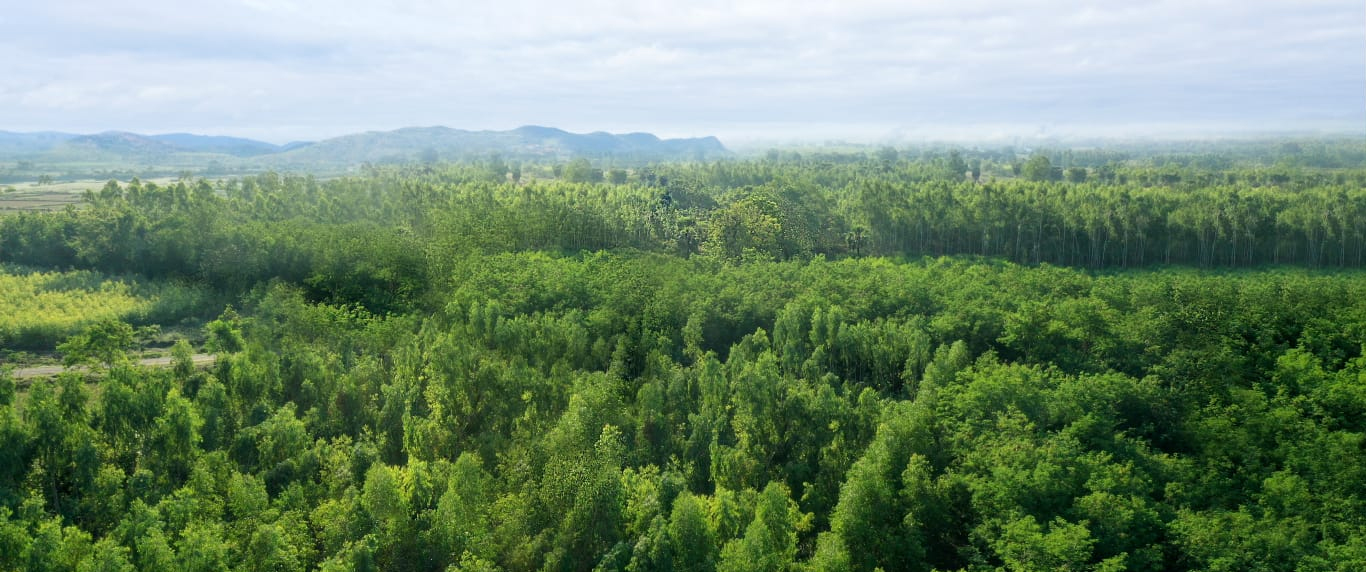
Global challenges emerging from the climate crisis and lack of adequate livelihood opportunities call for urgent and innovative solutions that can build a secure tomorrow. Large scale forestry can provide multiple pathways to address some of these colossal problems. Afforestation enables effective climate action through extensive carbon sequestration, prevention of soil erosion, enhancement of soil health, and increased ground water recharge. It also supports generation of livelihood opportunities at scale, thereby contributing to overall socio-economic development.
ITC's Paperboards and Specialty Papers Business has spearheaded a large scale Afforestation Programme that not only provides a sustainable source of fibre but contributes to natural resources replenishment, supporting the Company's climate action plan, as well as in supporting the generation of gainful livelihoods. In addition, it also enables effective import substitution by creating pulpwood plantations in India. Over the years, this programme has also assisted farmers to turn their unproductive land assets into profitable and renewable plantations, using clonal saplings specially developed by ITC R&D to grow in harsh conditions. ITC is a willing buyer of the produce, through the growers are free to sell to the highest bidder in the open market.
By enriching natural resources, supporting livelihood and building competitiveness of the Business through a sustainable fibre value chain, this innovative programme exemplifies ITC's triple bottom line approach.
ITC's Life Sciences and Technology Centre (LSTC) has developed fast-growing, high-yielding and disease-resistant hybrid clones and saplings of eucalyptus pulpwood. These saplings contribute to building resilience in small farm holdings and increasing farmer income.

ITC's Social Forestry programme provides small and marginal landowners the means to turn unproductive land into an income-generating asset and a sustainable livelihood opportunity through tree plantation in fields with pulp, fruit or other multipurpose species. ITC provides clonal saplings of climate resistant varieties at subsidised rates, technical support and training (through Social Forestry Groups) and financial assistance through long-term, interest-free loans. Moreover, farmers receive assistance to get Forest Stewardship Council (FSC®) Certification for their plantations, which in turn, ensures sustainable cultivation and premium pricing for their wood.
FSC FM License Code (FSC®-C102390)
Chain of Custody Certification from the Forest Stewardship Council® (FSC®-C064218)